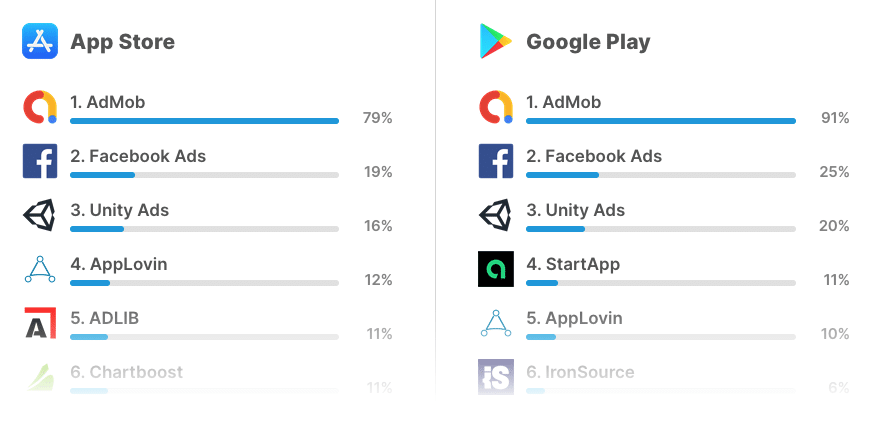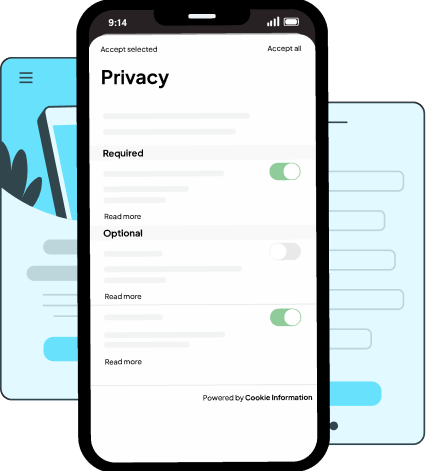TL;DR – GDPR compliance for mobile apps
Yes! The rules for privacy that apply to cookies, also apply to mobile apps and mobile app SDK’s.
The app owner (the company) is responsible for ensuring that the app complies with international privacy laws like GDPR.
You must collect your users’ consent to the collection of their personal data.
Do privacy laws like the GDPR apply to your company’s mobile app?

- Analytics data
- Data for retargeting
- Location data
- Much more
What do privacy laws say about mobile apps?
Mobile Apps and the ePrivacy Directive
you need consent to store or gain access to information on a user’s device.
the right to refuse data collecting and further processing of his or her data.
If you use third-party SDK’s that store information or gain access to information on a user’s mobile device, then you need to obtain your user’s consent.
"Member States shall ensure that the use of electronic communications networks to store information or to gain access to information stored in the terminal equipment of a subscriber or user is only allowed on condition that the subscriber or user concerned is provided with clear and comprehensive information in accordance with Directive 95/46/EC, inter alia about the purposes of the processing, and is offered the right to refuse such processing by the data controller."
ePrivacy Directive 2002/58/EC - Article 5(3)
- Technical purposes (like technically necessary cookies), I.e., making sure the app works.
- Facilitating transmission of communication.
- Providing information explicitly requested by the user.
Mobile Apps and the GDPR
you must collect your users’ consent for the data these SDK’s collect.
You are only allowed to process personal data if the user has given consent to it.
- If you use third-party SDK’s that collect and process your users’ personal information, then you need to obtain your users’ valid GDPR consent.
"Processing shall be lawful only if and to the extent that at least one of the following applies:
(a) the data subject has given consent to the processing of his or her personal data for one or more specific purposes."
General Data Protection Regulation (GDPR) - Article 6(1a)
“But we don’t collect or process any data?”
What is personal data?
- Name
- Identification number
- Location data
- IP-address
- Online identifiers
- User ID
- Device ID
- And much more
What is a GDPR consent?
- Freely given
Your users must be able to reject data processing aka your use of data collecting SDK’s. - Informed
You must inform your users about what data the SDK’s collect and process, and for what purpose. - Specific
You have to ask permission to collect data for different purposes, e.g., marketing/advertising, statistics, functionalities (granular consent). - Unambiguous
Your users must be absolutely aware that they have given or rejected consent. No swiping or merely using the app is not considered valid consent.
How do I collect consent in our mobile app?

